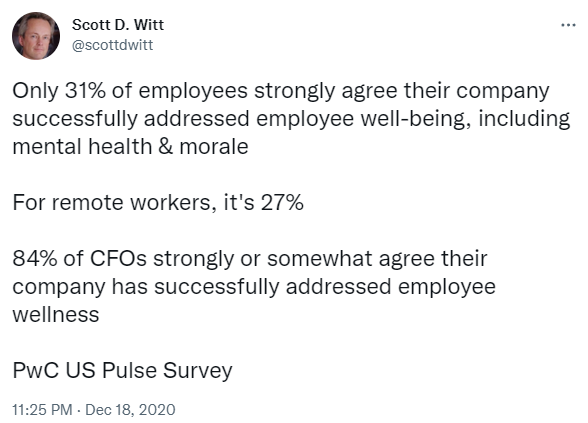Are you ignoring the warning signs that your employees may be unhappy or disengaged?
If you’re not regularly conducting employee pulse surveys, you could miss out on valuable insights and opportunities to improve your workplace.
But don’t just take my word for it — the evidence speaks for itself.
Companies that regularly conduct employee pulse surveys have been shown to have higher levels of employee satisfaction and engagement, leading to increased productivity, reduced turnover, and improved overall performance.
In this blog post, we’ll explore the importance of employee pulse survey questions and how they can benefit your business along with a list of the top 41 employee pulse survey questions.
Table of Contents
What is an employee pulse survey?
 An employee pulse survey is a short and frequent survey designed to provide a quick snapshot of how employees are feeling about their work and the company. It measures the satisfaction, engagement, and well-being of employees.
An employee pulse survey is a short and frequent survey designed to provide a quick snapshot of how employees are feeling about their work and the company. It measures the satisfaction, engagement, and well-being of employees.
These surveys are typically conducted often, such as monthly or quarterly.
By regularly collecting and analyzing this feedback, you can identify any issues or concerns your employees may have and take action to address them before they become more serious.
Additionally, employee pulse surveys can provide valuable insights into what employees value and what they would like to see improved, allowing HR leaders and managers to make informed decisions and strategies that align with the needs and preferences of the people.
What are the benefits of an employee pulse survey?
Here is a list of benefits of employee pulse surveys:
1. Identify issues and concerns
Employee pulse surveys can help identify any issues or concerns that employees may have and provide an opportunity to address them before they become more serious.
2. Improve communication
Employee surveys can help improve communication and transparency within the company by providing a forum for employees to share their thoughts and opinions.
3. Gain insights
Employee surveys can provide valuable insights into what employees value and what they would like to see improved, which can help inform decision-making and business strategy.
4. Foster a positive work environment
Employee pulse surveys can help foster a positive and supportive work environment by showing employees that their opinions and concerns matter and by providing an opportunity for them to voice their thoughts.
5. Improve morale and engagement
Employee surveys can help improve overall employee morale and engagement by providing a sense of ownership and participation in the company’s direction and success.
6. Measure satisfaction and well-being

Source: Scott D. Witt
Employee pulse surveys can help measure employee satisfaction and well-being, providing a baseline for tracking progress and identifying areas for improvement in your employee strategy.
7. Enhance employee development
Employee surveys can provide valuable feedback on employee development and training needs, allowing the company to provide targeted support and resources to help employees grow and succeed.
8. Improve employee retention
Employee surveys can improve employee retention by identifying factors that contribute to employee satisfaction and engagement and by providing an opportunity to address any concerns or issues that may lead to turnover.
41 employee pulse survey questions to ask new hires
Here are the top 41 questions that you could include in an employee pulse survey for an employee who has completed 60 days on the job:

- How would you rate your experience working at the company so far?
- Do you feel you have received adequate training and support to succeed in your role?
- Have you met and interacted with your colleagues and other teams?
- Do you feel like your opinions and ideas are valued by your manager and team?
- Do you feel you clearly understand your role and responsibilities?
- Have you been given the tools and resources you need to do your job effectively?
- Do you feel you have a good working relationship with your manager?
- Do you feel you have a good working relationship with your team members?
- Have you had the opportunity to learn about and contribute to the company’s goals and objectives?
- Do you feel you clearly understand the company’s policies and procedures?
- Have you received regular feedback and support from your manager to help you improve and grow in your role?
- Do you feel you have a good understanding of the company’s culture and values?
- Have you learned about and contributed to company initiatives and projects?
- Do you feel you have a good understanding of the company’s products and services?
- Have you attended any training or development sessions to improve your skills and knowledge?
- Do you feel you have a good understanding of the company’s performance metrics and how your role contributes to them?
- Do you think you have a decent understanding of the company’s leadership and organizational structure?
- Do you believe you have a clear career development plan and opportunities for advancement within the company?
- Do you feel you have a good understanding of the company’s customers and their needs?
- Do you think you can effectively collaborate with other teams and departments?
- Do you have knowledge of the company’s competitive landscape and market position?
- Can manage your time and priorities to meet your goals and objectives?
- Are the company’s technology and systems easy to navigate?
- Do you feel comfortable seeking help when you need it?
- Do you feel you have a good understanding of the company’s policies and procedures around diversity, inclusion, and equity?
- Do you feel you have a good understanding of the company’s rewards and recognition programs?
- Are you able to balance your work and personal responsibilities?
- What do you like most about your job so far?
- What do you like least about your job so far?
- How well is your onboarding experience preparing you for your role?
- Are you receiving training and support to do your job effectively?
- How would you rate your relationship with your manager?
- How would you rate the communication within your team?
- Are your workload and responsibilities manageable?
- Are you satisfied with your salary and benefits?
- Do you feel valued and appreciated in the company?
- Do you feel you have a good support network at the company?
- Do you feel like your job is fulfilling and meaningful?
- Do you feel like the company’s values align with your own?
- Do you feel like the company provides a safe and healthy work environment?
- Do you feel like the company provides opportunities for networking and professional development?
Want to automate this process? Opt for tools like Survey Sparrow, CultureAmp, and Workday for a great employee experience.
Retain top talent with employee pulse surveys
To ensure that your employee pulse surveys are effective and provide actionable insights, it’s important to follow a thorough and well-designed checklist.
This checklist should include steps for planning and prepare for the survey, as well as guidelines for creating and distributing the survey, analyzing the results, and taking action based on the feedback.
By following a comprehensive employee pulse survey checklist, you can ensure that your surveys are effective and provide the information you need to improve your workplace and support the success of your employees.
So why wait? Start incorporating employee pulse surveys into your business today and unlock the potential of your team.
Looking to collaborate with a writer to create engaging assets for your employees and customers alike? Contact me!
Related Posts
March 18, 2024
Technical SEO Audit: A 6-Step Guide to Improving Website Performance
0 Comments9 Minutes



